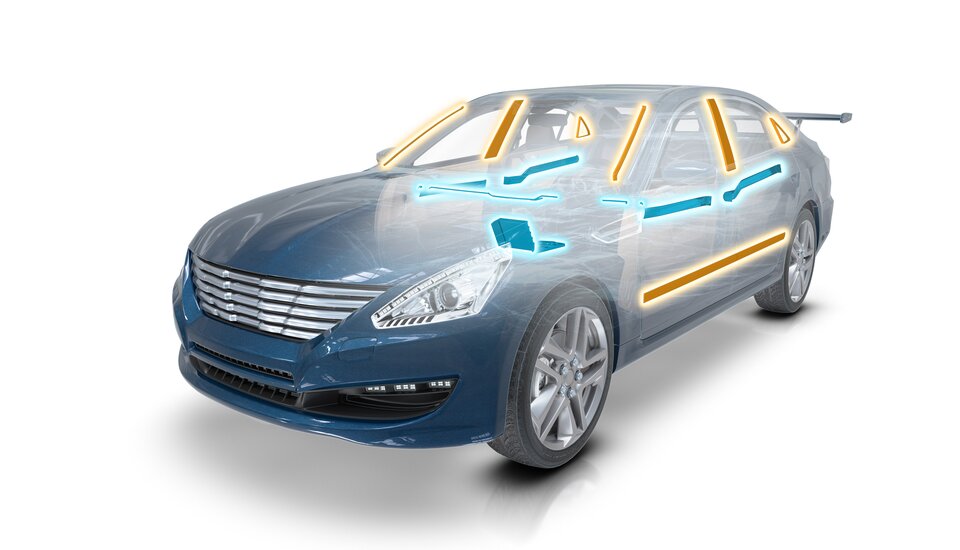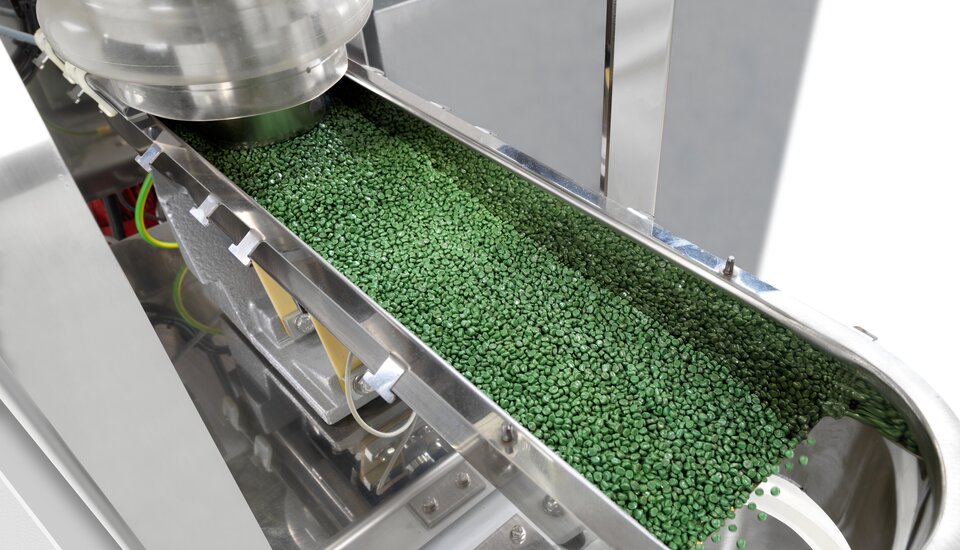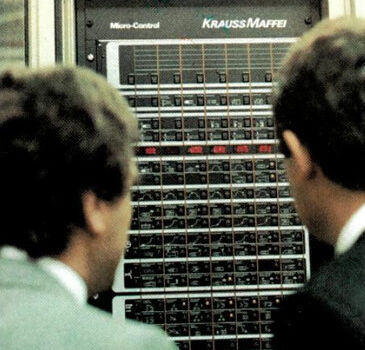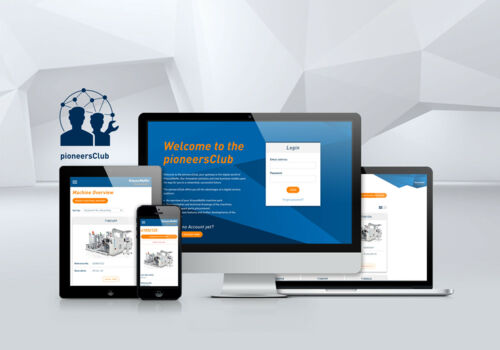
Trendgineering
"Two machines do the work of three"
| Petra Rehmet
Monoflo relies on automatic mold changes for larger logistics packaging
From the distribution center to the supermarket, from the supplier to the automaker – and all the way to the assembly line by means of an automatic conveyor system. Goods are being moved everywhere. They need a sturdy container for solid protection. Monoflo in Virginia specializes in pallets, collapsible bulk containers, totes, and trays – and, since 2015, has been using technology from KraussMaffei.
At its Winchester location, about 70 miles from Washington, DC, ten heavyweight injection molding machines from the KraussMaffei MX series with clamping forces of 10,000 to 32,000 kN are in use already, and two new MX machines (one MX 1600 and one MX 2300) and seven GX 1100 machines are currently on order, some of them equipped for automated labeling, in mold labeling (IML) and palletizing. Monoflo is a family-owned company. It pursues a strategy of continuous expansion of its capacity and technologies to be ahead of the game in its market. Its claim is even printed right on the employees' uniforms – "Crafting Better Plastics."
At manufacturing locations in Virginia and Kansas, two hundred and fifty employees produce reusable transport packaging products such as pallets, collapsible bulk containers, totes with and without lids – some of them stackable – as well as trays and totes for automation solutions 24/7. Most Monoflo customers are from the logistics industry, followed by the automotive sector, automation and the food industry. Most of the products are standardized for each industry. Depending on the client, they can be produced in custom colors, marked with the client’s name, and labeled to their exact specifications. The customer list includes global players such as Amazon, General Motors, Mercedes, and Aldi.

Broad product portfolio of large logistics packaging:
Monoflo specializes in pallets, collapsible bulk containers, totes, and trays and thus supplies global players such as Amazon, General Motors, Mercedes and Aldi.
IML as new option for more profitability
Manufacturing efficiency and cost-efficiency are particularly valued at Monoflo. You have to keep this in mind if you want to introduce technologies that are not yet widespread in the US. In the words of Henning Rader, the CEO, "Currently we apply customer specific barcode labels to totes and trays after they have been produced. Applying the barcode labels during the molding process using IML offers advantages, specifically when the products are used in cold storage applications or when they are frequently washed. The IML process permanently bonds the barcode label to the product during the molding process, thereby eliminating the chance for the label to separate from the product or become wrinkled. For this exact reason, we're going to start offering IML as an option on our products going into these applications. But IML will increase the cycle time which in turn affects the cost. This means we will have to see how receptive the market is, and we have ordered the GX machines with specifications that will allow us to do both conventional and IML labeling."
The collaboration between Monoflo and KraussMaffei began in 2015 – and it began with a bang, that is, a five-million-dollar deal. Rajesh Shah, a KraussMaffei sales person, had been keeping in touch continually for three years and happened to catch Monoflo at the right moment when machinery was needed for a new application. Henning Rader remembers, "Of course it is quite crazy to start such a large-scale project with a new partner, but we felt that KraussMaffei would be a perfect fit – and indeed it was. Their service is simply excellent. Together, we always find a solution for our challenges."
Mold change in just 9 minutes
How an area of concern resulted in a special highlight in the production hall. Automotive customers of Monoflo sometimes need only 500 pieces of a particular tote and 1000 of another, meaning that these molds must be changed relatively frequently. The net time requirement for a mold change is 45 minutes. But since there was not always a skilled mold setter available right away, the machine was sometimes down for multiple hours. The company searched for a remedy and found it in the automatic quick mold change system from KraussMaffei. Now the time that passes between the last part from the old mold to the first good part from the new mold is down to a mind-blowing nine minutes.
"The automatic mold change is the coolest thing in the world! We have equipped two machines with it, and the two machines now do the work of three systems. You really just have to press the button. And this is easy for anybody to operate."Henning Rader, CEO Monoflo
Other special applications from KraussMaffei are also at work in Winchester. In an MX 3200 TwinForm, two components of a collapsible bulk box are created in one shot. The components are bonded to each other afterward, and since the charged material is often abrasive and sometimes highly viscous, the screws are designed and coated accordingly.
Up to 100 percent recycled content
The raw material is of interest to Monoflo for an additional reason. Transport containers travel a lot and may be stored outdoors and become damaged. These damaged products are an ideal starting point for new totes, pallets, and bulk containers. Therefore the company even operates its own recycling plants at its Virginia and Kansas locations. Incoming raw material is shredded, washed and recycled so that it can be used to produce new goods. Many of Monoflo products contain recycled material; in some products the content is even 100 percent.

A look into the production at Monoflo:
Depending on customer requirements, up to 100% recycled material is processed.
As the percentage of regrind varies, this is the ideal place for the APC plus machine function. Based on the viscosity of the melt and stored parameters, this function regulates the filling quantity individually from shot to shot. Avoiding overflow is a must when producing high-precision technical parts due to their narrow tolerances. However, for the robust articles from Monoflo, the bottom line above all is managing cost.
In view of the current prices, every gram of material that is not wasted in injection is a gain. The production scrap rate in the industry is two percent on average. Henning Rader says, "We are always below one percent, and our process technicians love APC plus." Other digital aids such as smartAssist and socialProduction are also going to be tested in the near future.
"Our process technicians love APC plus. We always have a scrap rate less than one percent and thus are well below the industry average of two percent.".Henning Rader, CEO Monoflo
Currently Monoflo is building a new hall as a home for the injection molding machines that have been ordered from the MX and GX series – and this is not the end of the line. Henning Rader says, "We foresee significant growth in our segment over the next five years. This means more large machinery."















